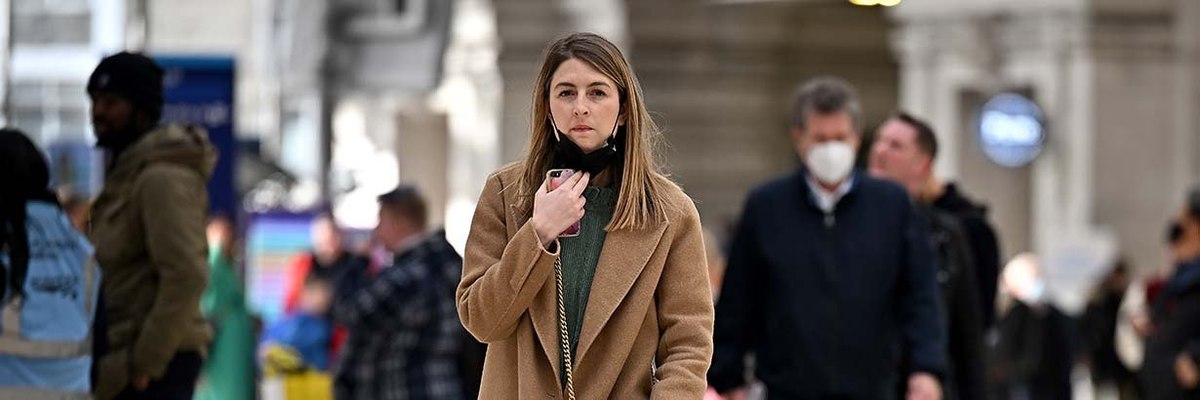Conservative voters are the most likely to emphasise learning to live with COVID over ramping up vaccine, mask and testing efforts
All remaining COVID-19 restrictions came to an end in England on 24 February, with the government having set out its plans for so ‘living with COVID-19’ in a strategy document of the same name.
But do people agree that we need to learn to live with COVID-19?
The answer, according to most Britons, is yes. Asked their opinion on COVID-19 in a survey on 25-28 February, immediately following the end of restrictions, almost than three in five (59%) chose the statement “we need to learn to live with it and get back to normal”. This compares to only 31% who said “we need to do more to vaccinate, wear masks and test”. For English adults specifically, these figures are identical, at 59% to 31%, while in Scotland the results are also similar at 61% vs 29%.
These figures are virtually unchanged from a previous wave on 15-16 February before restrictions ended, when 63% said we need to learn to live with COVID and 28% said more should be done on vaccines, masks and testing. Again, the figures were identical among English people specifically, at 63% to 28%.
Conservative voters in particular are most likely to say we should come to cope with the disease, by 73% to 22%. Labour voters are much more split, with 48% tending to think it is time to co-exist with the condition, compared to 41% who say that we should revitalise vaccination and testing efforts and mask-wearing.
Across all age groups, people tend to say it’s time to learn to live with the disease and get back to normal.
The question was first fielded in the USA in early February, where it proves far more divisive. Around half (48%) of Americans said at that time that people need to learn to live with the disease and get back to normal, only slightly higher than the 42% who said more needed to be done on vaccines, masks and testing.
The divide is highly partisan, with Democrats wishing for a tougher approach to the pandemic by 70% to 23%, while Republicans are more inclined to get on with things and return to normal by 76% to 16%.
Are things back to normal?
The results also show that Britons do mean it when they say “get back to normal”. Only 29% of Britons currently believe that their lives have returned to the pre-pandemic normal, compared to 64% who say they have not. This figure is the highest we have measured so far on this tracker, up from 12% in the last poll in late December, when the Omicron variant was sweeping through the country (although prior to Omicron that figure had been 20%).
There is a more notable distinction between English and Scottish respondents on this question. Scots are more likely to say it does not feel like things are back to normal (77%), compared to Britons (62%), unsurprising perhaps given that some COVID restrictions are still in place north of the border.








